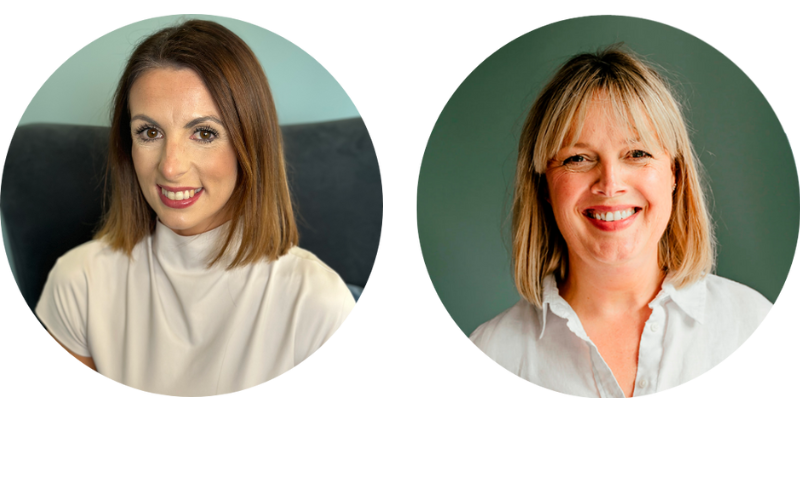
At Well Connections, we pride ourselves on connecting clients with qualified psychologists and psychotherapists who are skilled in a variety of therapeutic approaches. One of the most effective and versatile methods is Eye Movement Desensitisation and Reprocessing (EMDR). Originally developed to treat trauma and PTSD, EMDR has evolved significantly and is now used to address a broad spectrum of mental health concerns for adults and young people. If you’re considering private therapy sessions, our team is ready to help you explore how EMDR could work for you.
What Is EMDR?
EMDR is a structured therapy that facilitates the reprocessing of traumatic memories using bilateral stimulation, such as eye movements, taps, or sounds. Based on the Adaptive Information Processing (AIP) model, EMDR helps clients process stored memories of distressing events, allowing the brain to integrate these experiences in a healthier, less disruptive way. Unlike traditional talk therapies, EMDR focuses on resolving the emotional impact of specific memories without requiring clients to recount them in great detail.
Expanding Applications of EMDR Therapy
While EMDR is best known for its effectiveness in treating trauma and PTSD, Lisa McKendrick, Forensic Psychologist and EMDR Practitioner talked to us about it’s clinical applications now extend far beyond these conditions. Here are some of the many issues that EMDR can help address:
Anxiety and Panic Disorders – EMDR has shown remarkable results in reducing symptoms of generalised anxiety, phobias, and panic disorders.
Grief and Loss– Individuals struggling with profound grief can find relief from the intense emotional pain associated with loss.
Performance Anxiety– Whether in sports, academics, or the performing arts, EMDR helps clients overcome blocks and enhance performance.
Chronic Pain and Somatic Disorders– Issues such as migraines, phantom limb pain, and chronic fatigue syndrome have been effectively addressed using EMDR.
Addictions– From substance abuse to behavioural addictions like gambling or overeating, EMDR supports recovery and reduces the likelihood of relapse.
Depression – EMDR can provide significant improvement in depressive symptoms, even when linked to trauma or other life stressors.
Relationship Challenges – By addressing underlying emotional wounds, EMDR helps clients improve interpersonal relationships and heal from family or marital dysfunction.
“EMDR therapy can help us heal from our past, restore inner strength, and guide us towards a more balanced and hopeful future.”
Lisa McKendrick, Psychologist at Well Connections.
How Does EMDR Work?
EMDR therapy is an eight-phase approach, which includes identifying distressing memories, reprocessing them with bilateral stimulation, and developing healthier responses. The process allows clients to transform the way these memories affect their daily lives, reducing emotional distress and fostering resilience. EMDR can be used with Children, Young people and Adults.
Laura Keay’s Thoughts on Childhood Trauma and EMDR Therapy
Laura Keay, an Integrative Psychotherapist and qualified EMDR practitioner for young people, emphasises the profound impact of early childhood trauma on development. She highlights that:
Impact of Trauma – Trauma in early childhood, including adverse childhood experiences (ACEs), can disrupt attachment, delay cognitive development, and impair emotional regulation. These effects can have long-term implications on a child’s mental and physical health.
Creative and Collaborative Therapy – Working creatively is vital when helping children process trauma. EMDR (Eye Movement Desensitisation and Reprocessing) therapy is tailored to the child’s developmental stage, often incorporating stories, pictures, or narratives to make the process accessible.
The Role of Safety – Establishing a sense of safety is crucial. When children feel secure, their brains begin to calm, enabling therapeutic progress.
Caregiver Involvement– Therapy often includes caregivers, whose loving presence can significantly reduce the impact of traumatic events.
Small-t vs. Big-T Trauma – Smaller, non-life-threatening events, like bullying or academic struggles, can still cause significant emotional distress and are often overlooked. These “small-t traumas,” when repeated, may have a more lasting impact than a single major traumatic Big-T event.
“Trauma, whether big or small, can deeply affect a child’s developing mind and body. When children feel safe, their brains begin to calm, allowing healing to take place. Through creative and adaptive approaches like EMDR, we can help young people process their experiences and build resilience for the future.”
– Laura Keay
Benefits of EMDR Therapy
- Fast Results: Many clients report noticeable improvements in fewer sessions compared to traditional therapies.
- Non-Invasive: EMDR focuses on processing memories without requiring in-depth discussion, which can feel safer for many clients.
- Adaptable: It can be tailored to suit various conditions, making it a versatile choice for individuals with complex needs.
- Long-Lasting Effects: By addressing root causes, EMDR provides sustainable relief from symptoms.
Research consistently demonstrates that EMDR therapy enables individuals to experience the benefits of psychotherapy more rapidly than traditionally expected. While it’s often assumed that severe emotional pain takes years to heal, EMDR therapy reveals that the mind has an innate ability to recover from psychological trauma, much like the body heals from physical injuries. Consider how your body works to close a wound when you cut your hand. If something continues to irritate the injury, it may become inflamed and painful. Once the obstruction is removed, natural healing resumes. EMDR therapy helps remove these psychological “blocks,” allowing the healing process to unfold.
(Source: EMDR.com)
Why Choose Well Connections for EMDR?
At Well Connections, our team of psychologists and psychotherapists are specially trained to deliver EMDR therapy to both adults and young people. We understand that every individual’s journey is unique, and we tailor our approach to meet your specific needs. With availability for private sessions now, this is your opportunity to explore a therapy that has been transformative for so many.
Contributors Lisa McKendrick Registered Forensic Psychologist and Laura Keay Integrative Psychotherapist, both qualified EMDR Practitioners.
Book a Free consultation call today
📞 Book a Free Consultation Today:
👉 Visit: www.wellconnections.co.uk
📧 Email: info@wellconnections.co.uk


